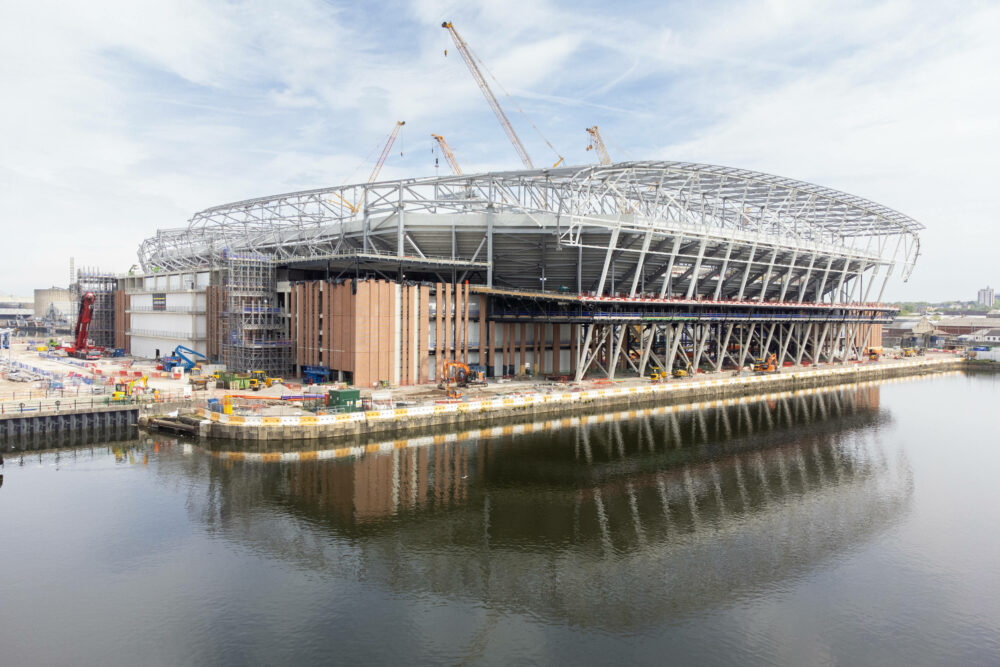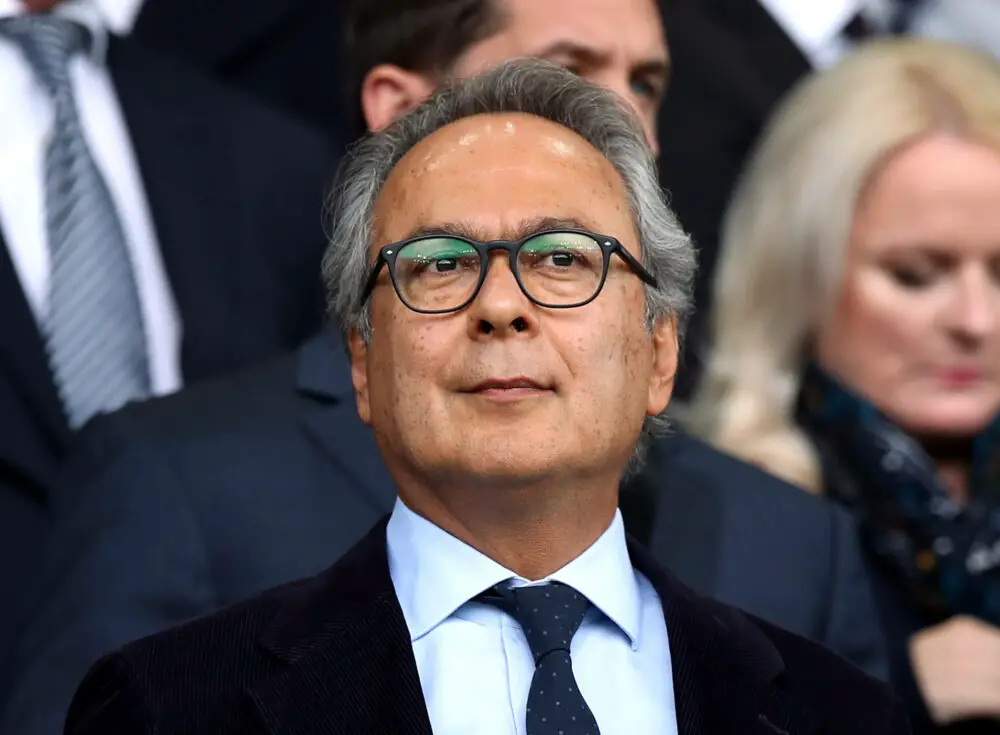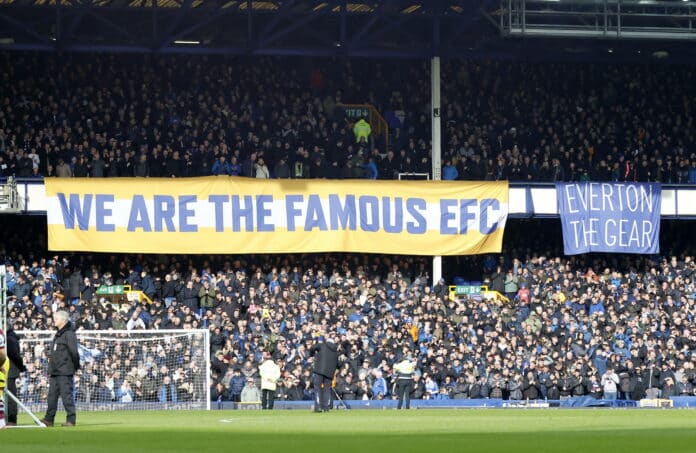Everton’s 777 Takeover Collapse: What Lies Ahead?
The phrase “the penny dropped” has murky origins, possibly linked to old slot machines or public toilets. Nonetheless, when reality hits, it’s unmistakable. The civil suit filed by Leadenhall, a London-based investment firm, against 777 Partners, the Miami-based firm negotiating with Everton owner Farhad Moshiri for over a year, might be that penny.
In the suit, 777 Partners was depicted as a “house of cards,” with Everton being the latest target in 777 boss Josh Wander’s “fraudulent scheme, solvency aside.” While 777 declined to comment, the implications are clear. Moshiri might finally be realising that 777 can’t close the deal agreed upon in September. Adding to the doubt, 777 has enlisted restructuring experts, as revealed in a memo seen by The Athletic.
On June 1, Everton announced that the agreement with 777 Partners had expired. They acknowledged the financial support provided by 777 in recent months but did not offer further clarity on future steps.
Now that the reality has set in, let’s explore the likely scenarios Everton might face next.
777 Finds the Money
Despite the grim outlook, there remains a slim chance that Josh Wander could secure the funds needed to meet the Premier League’s conditions. Although Everton can now engage with other potential buyers, 777 has invested significantly in the club and maintains a relationship.
However, the odds are minuscule. For over a year, 777 has sought external financing, meeting numerous rejections. Their primary financial backer, A-Cap, which has funnelled significant funds into 777’s ventures, appears to be drying up. The £15 million Everton received last month from A-Cap takes their total debt to 777/A-Cap to roughly £200 million. These loans have kept Everton’s new stadium construction on track and the club operational this season.
Yet, the situation is dire. Other 777 ventures are facing financial issues, with late payments at Red Star Paris and Standard Liege, cost-cutting at London Lions, and the forced sale of their stake in Canadian airline Flair. These troubles, combined with legal allegations against 777, paint a bleak picture.
The lawsuit by Leadenhall accusing 777 and A-Cap of running a “giant shell game” or “Ponzi scheme” underscores the gravity of the situation. Although still a civil claim, it highlights severe financial mismanagement. Given this backdrop, it’s improbable that 777 will secure additional funds. The chance of 777 finding the money is next to nil.

New Buyers for Everton
This scenario hinges on the emergence of a new buyer if 777 steps aside. Everton’s appeal lies in its proud history, large fanbase, Premier League status, and nearly completed new stadium. But there are challenges.
Construction at Bramley-Moore Dock continues, requiring perhaps £100 million more to complete. Additionally, Everton faces significant financial losses, having lost over half a billion pounds under Moshiri’s tenure. The club’s debts exceed £1 billion, with £450 million in unsecured loans from Moshiri and nearly £400 million in secured debt.
Moreover, the team faces further financial pressures, needing to sell key players to avoid breaching league financial rules. The complexities make Everton a challenging purchase, deterring potential buyers.
Why did no one step forward before 777’s involvement? The high cost, significant debt, and operational losses make Everton a risky investment. Sportico’s list of valuable football clubs excluded Everton, indicating their financial struggles. Forbes valued Everton higher, but the club’s overall enterprise value still poses a significant hurdle.
Everton Enter Administration
Administration, akin to Chapter 11 in the USA, allows companies to restructure debts while continuing operations. For Everton, this could mean shedding significant debt and attracting new owners.
Administration can be initiated by directors, creditors, or courts, with insolvency practitioners taking over. Their goal is to save the company, usually by selling it, minus some debt. However, administration is not without its downsides, including a potential 12-point deduction in the Premier League and severe operational disruptions.
Insolvency processes often lead to redundancies and canceled contracts. Football rules mandate full payment of debts to players and other clubs, limiting the financial flexibility of administrators. This could significantly impact Everton’s operations and reputation, making it a less favourable option.

Everton’s Creditors Take Control
A more favourable scenario might involve Everton’s main creditors, MSP Sports Capital and Rights and Media Funding (RMF), taking control. MSP, which previously agreed to loan £158 million to Everton, could exercise its right to seize shares from Moshiri due to 777’s failure to repay the loan.
MSP’s loan is secured against Everton’s new stadium, giving it significant leverage. RMF, which has provided substantial loans secured against various Everton assets, also has a strong position. Together, they could manage a restructuring that avoids administration, potentially agreeing on debt write-offs or long-term repayment schemes.
This scenario would involve selling key players to stabilise finances but could prepare Everton for a more sustainable future. MSP and RMF would aim to quickly find a new owner, stabilising the club and ensuring its competitive future.
Uncertain Future
Everton face a critical juncture following the collapse of the 777 takeover. While the future remains uncertain, the club must navigate significant financial and operational challenges. Whether through securing new investors, entering administration, or creditor intervention, the path ahead requires careful management and strategic planning.


